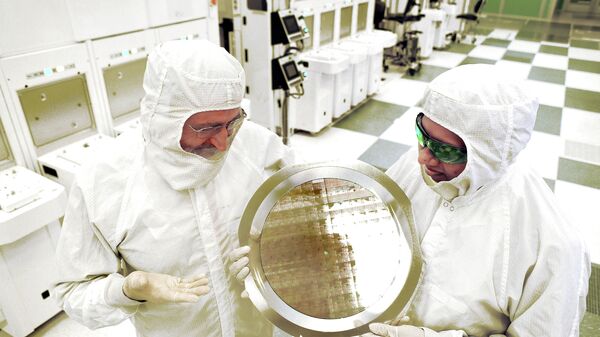The new chip boasts four times the capacity of the current generation of computer chips, which have transistor gates of 14 nanometers, or 14 billionths of a meter. Instead of pure silicon, the new chip is made using a silicon germanium alloy.
"It's a major step," said Mukesh Khare, vice president of semiconductor technology at IBM Research, which is investing $3 billion over five years in a joint project with GlobalFoundries and the State University of New York in semiconductor research.
"We have been working on this technology for more than five years."
IBM's chip is not expected become available until at least 2018, and ensures the immediate survival of Moore's Law, a prediction made about the future of integrated circuits.
Currently, manufacturers are looking to make the transition from 14 nm transistors to 10 nm; in February, Intel announced it was hoping to release its first chips based on 10 nm transistors in late 2016 or early 2017.
Speaking at the annual International Solid-State Circuits Conference, the chip manufacturer also signaled the end for silicon after 10 nm chips. According to Intel, progress from 14 nm to 10 nm requires innovation, while production of chips with 7 nm nodes will require new materials and processes.





